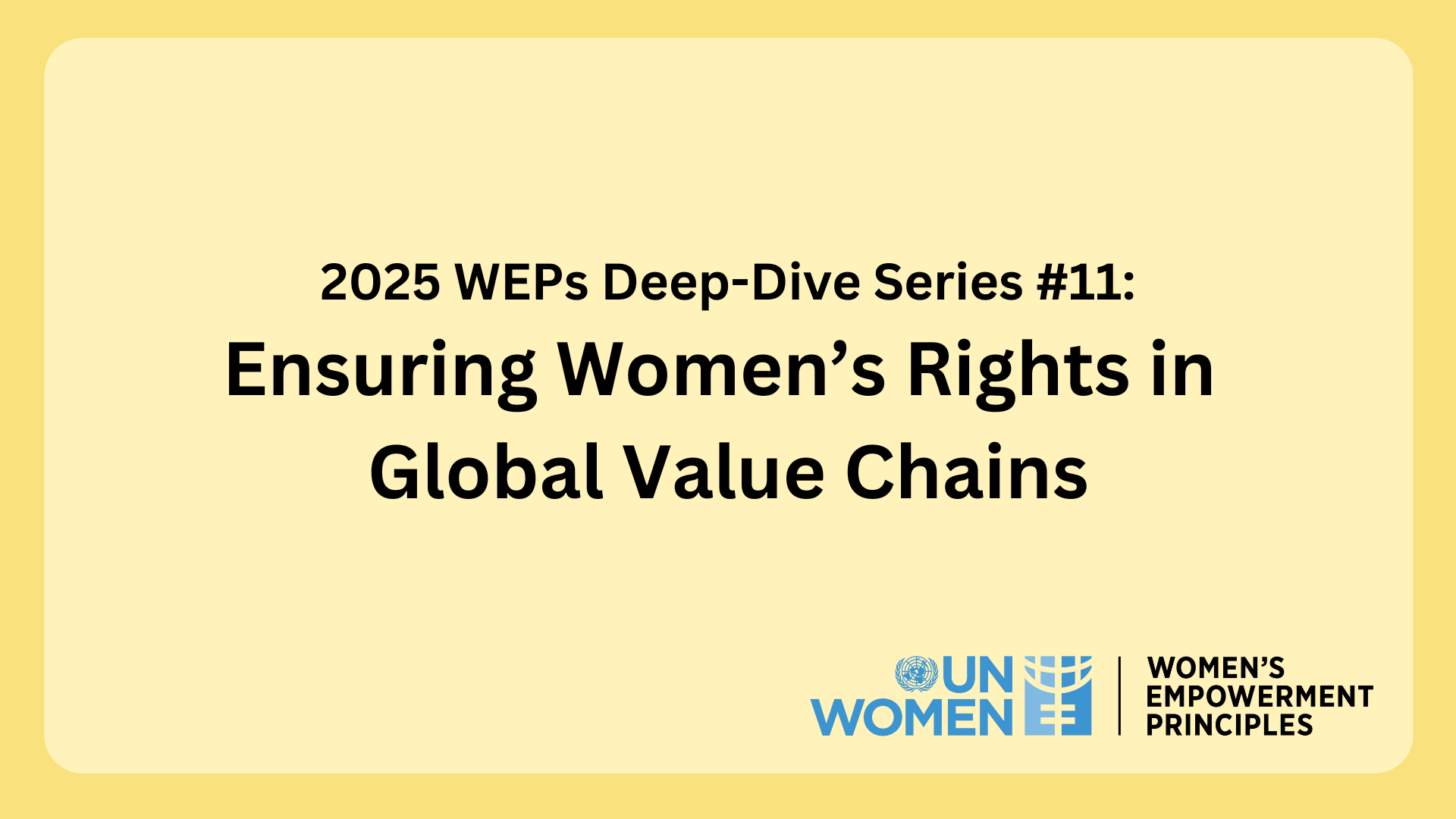The February 2025 WEPs Deep-dive series session explored how businesses can advance gender equality in global value chains. Despite women’s critical role in value chains, systemic inequalities—such as wage gaps, discrimination and limited leadership opportunities—persist.
Anna Falth, Global Head of the Women’s Empowerment Principles Secretariat, emphasized that businesses have both a responsibility and an opportunity to address these challenges. Governments establish and enforce gender-equitable labour laws, while companies implement gender-responsive policies and ensure women’s legal protections. She emphasized the importance of monitoring gender inequality risks as well as opportunities along the supply chain, particularly among second—and third-tier suppliers.
Why Gender Equality in Business Matters
Experts highlighted that advancing gender equality is not only a social responsibility but also a business imperative. Companies with gender-inclusive policies tend to have stronger financial returns, more resilient supply chains, and better employee performance. Research shows that women-led businesses have lower loan default rates and that companies with gender-diverse leadership are more innovative and productive.
Corporate Leadership in Action
Emilie Van Landeghem, Manager at the Watch & Jewelry Initiative 2030, shared how new regulations, such as the EU’s Corporate Sustainability Due Diligence Directive (CSDDD), are requiring companies to assess human rights risks. A pilot programme conducted by the initiative helped businesses measure financial and social impact, engage suppliers beyond first-tier vendors, and implement gender-responsive procurement to support women-owned businesses.
Daniel Sharaiha, Chief of Human Capital & Customer Experience at Bank Al Etihad, outlined its inside-out approach to gender equality, starting with increasing the percentage of women employees to 48%. Then how the bank’s Shorouq programme increased the number of women customers 13-fold and provided non-financial support such as legal advice and business training to thousands of women-owned businesses. By adopting gender-responsive procurement practices, the Bank also influenced its suppliers to prioritize hiring of women.
Challenges and the Way Forward
Despite impactful initiatives, significant barriers remain. Societal norms continue to discourage women’s leadership and economic participation, workplace bias affects hiring and pay equity, and many businesses struggle to track gender equality efforts and impact in their supply chains.
Businesses can address these challenges by putting in place gender-responsive policies, engaging suppliers to improve women’s employment opportunities, and fostering leadership accountability to gender equality. Transparent reporting and data-driven approaches is key to sustaining progress and ensuring sustainable impact.
Ensuring women’s rights in global value chains is not just about compliance—it is a strategic decision that benefits both business and society. Companies that take action today will help build a more equitable and resilient economy for the future.
Listen to the recording: https://youtu.be/FtaGT6J1bCg

